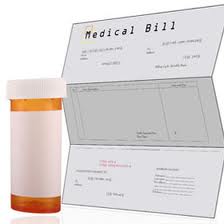Insurance companies in NJ have been raising their premium rates tremendously over the las few years, so many small business and employees are considering the switch to a high deductible health plan. It is important to evaluate all of the different options and to weigh the pros and cons of having a high deductible health plan so you can make the best choice for your family.
Before I get started into the pros and cons of having a high deductible health plan, lets make sure everyone is talking about the same thing. In this case, a high deductible plan, HDHP for short is a plan that has a higher deductible than most other plans and also has a out of pocket dollar maximum that a participant may have to pay throughout the year. So one example may be a plan with a $2500 single deductible and a $5,000 maximum out of pocket. These plans are usually HSA Qualified but that is not necessary for the purpose of this post.
High Deductible Health Plan Pros and Cons
High Deductible Health Plan Pros
- Significantly lower health insurance premiums. In some cases, companies and individuals can slash their premiums by as much as 50% by changing to a high deductible health plan.
- Self funded employers will see much lower claims usage when moving from a rich plan design to a higher deductible option. Lower claims equals lower renewal and more savings.
- Employees also benefit with lower renewal rates because the price increases won’t be passed to them in the form of higher payroll deductions.
- If the high deductible health plan is HSA Qualified, there are significant tax advantages. Also see ( HSA Rules for 2012)
- For employees leaving the company, another pro of a high deductible plan will be lower COBRA premiums. Don’t forget that when you leave, you now are paying 102% of the full monthly insurance premium.
High Deductible Health Plan Cons
- High Deductible in the beginning of the year. This is obvious, but worth mentioning. If you have any scheduled visits shortly after enrolling in new plan, you must be prepared to pay much larger fee for your service.
- High deductible at the end of the calendar year. Most plans run calendar year so if you start the high deductible plan in November, the deductible will reset in January. You now have the potentional to pay the full deductible in November and December only to have it reset in a January.
- More paperwork. Since you are now paying instead of the insurance company, expect to be getting a lot of different bills. Luckily the larger claims aren’t that frequent, so your paperwork should be fairly limited.
- Will you avoid care? Even when the premium savings are there, some people will outright avoid proper medical care for fear of the potential bill. I can certainly understand this but you should focus on the total maximum out of pocket and consider the worst case scenario. My personal plan had a $5,000 maximum out of pocket. I knew that under the worst case scenario, I would be paying about $400 per month if I manage to max the plan out. Not too bad if I had a $1,000,000 claim.
Now that we reviewed some of the pros and cons of a high deductible health plan, lets look at how to evaluate options.
How to evaluate different high deductible health plan options
Step 1 – get the monthly premium for the different plan options and convert them to annual
Step 2 – add the annual maximum out of pocket for each of the plans to the annual premiums
Step 3 – evaluate
Example:
Plan 1 Annual Premium is $5,000 with a $5,000 maximum out of pocket.
Plan 2 Annual Premium is $9,000 with a $3,000 maximum out of pocket
Plan 3 Annual premium is $13,000 with everything covered 100%
In this example you have the potential to pay up to $10,000 in plan 1, up to $12,000 in plan 2 or a guaranteed $13,000 in Plan 3. So despite having a higher deductible, plan 1 would be the best choice in my opinion. The other benefit is that if you don’t use the plan at all, you have the potential to save $8,000 in premium compared to plan 3.
If you have any questions on evaluating the pros and cons of a high deductible health plan, please contact Mike Sheeran for more information.

